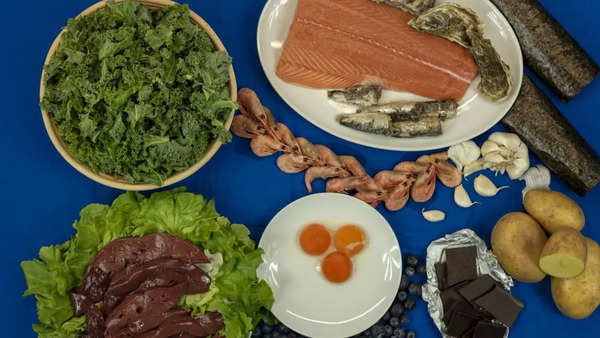An overlooked nutrient that can lay the foundation for better brain health in a baby and help preserve brain health as one grows old, choline has many marvels for cognitive health that people may not know. The powerful compound’s role extends to guarding against neurodevelopmental disorders, like attention-deficit/hyperactivity disorder (ADHD) and dyslexia too.
Choline isn’t naturally produced by the body, so it must be added to the daily diet via foods or supplements. While it isn’t discussed as often as it should be in the wellness world, the truth is that it is essential for performing many vital functions. It is needed by the brain and nervous system to regulate memory, mood, and muscle control. Not having enough choline can lead to muscle and liver damage and can raise the risk of nonalcoholic fatty liver disease.
Considering it’s an important nutrient, one may wonder about the ways it can be added to the daily diet. Mostly found in animal-based foods such as eggs, chicken, fish, and milk, vegetarians can easily get from peanuts, kidney beans, mushrooms, and cruciferous vegetables like broccoli. Seafood, turkey, edamame, soybean, amaranth, quinoa, cauliflower, black beans, and artichokes are some other choline-rich food items to have in the breakfast, lunch or dinner.

Benefits of choline
You will be amazed to know how this crucial compound goes beyond improving your brain health. From bettering heart health, bone health, to eating anxiety woes, choline has an undeniable role at every stage of life, from infancy, childhood, adulthood to old age.
Here’s a list of benefits:
Crucial in baby’s brain development
Including choline in a mother or child’s diet over the first 1000 days of life could help with normal brain development and improve cognitive function.
Heart health
Getting this important nutrient can keep the heart and blood vessels healthy as the compound keeps the blood pressure in control. Higher choline intake is linked with lower risk of cardiovascular diseases.
Prevents anxiety
Improving your choline intake can have an unexpected benefit for your mental health. Studies have linked choline consumption with lowering anxiety. Having a higher dietary intake of choline could also reduce risk of depression.

Protect brain function in older adults
People with Alzheimer’s disease have lower levels of the enzyme that converts choline into acetylcholine, a neurotransmitter crucial for brain function., as per a study. Phosphatidylcholine, which helps maintain neuron structure, may support cognitive function in the elderly. Some experts suggest it could slow dementia progression in Alzheimer’s patients, but limited research currently supports this theory.
Prevents fatty liver disease
Having a diet rich in choline can maintain healthy liver function and prevent NAFLD (non-alcoholic liver disease). Choline especially phosphatidylcholine, is essential for transporting lipids from the liver. When there isn’t enough choline in the body, fat accumulates in the liver, increasing risk of fatty liver.
Bone health
Choline-rich foods can help reduce levels of homocysteine, an amino acid that raises risk of heart disease and is also associated with osteoporosis. People who consume choline in sufficient amounts whether in the form of food or supplement, tend to have a higher bone density.
What happens when you have too much choline
Like any other nutrient, an excessive intake could lead to symptoms like fishy body odor, vomiting, excessive sweating and salivation, hypotension, and liver toxicity. Choline must be consumed with care as its consumption is also linked to production of TMAO, a substance known to elevate risk of cardiovascular disease.


